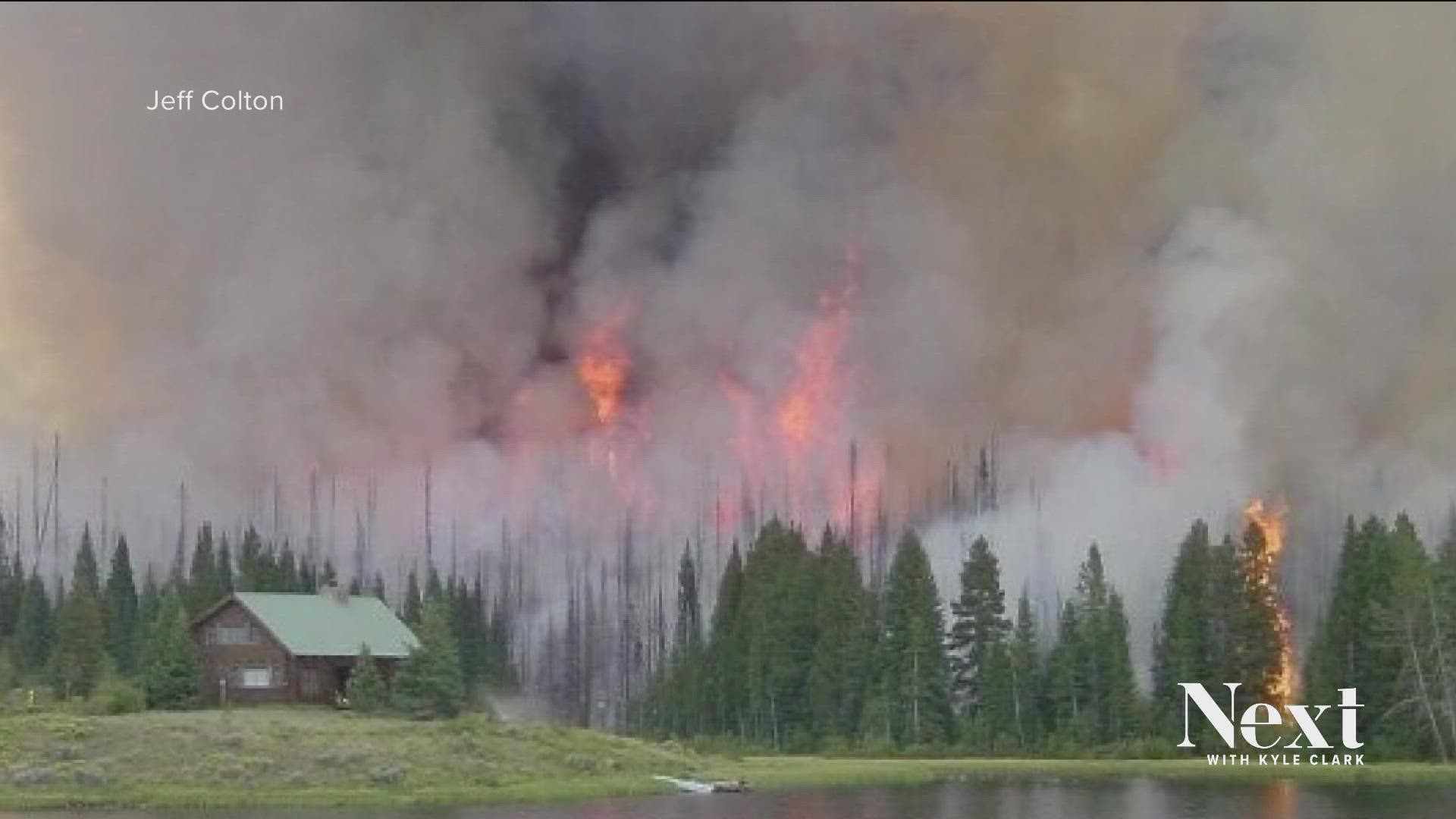DENVER — The people who study wildfires say Colorado is not only set to have more of them, but they will be fires that are more destructive and more expensive.
These predictions come from a select group of meteorologists who are on the frontlines.
Incident meteorologists respond to fires along with firefighters. They are on the ground for the weather forecasts monitoring thunderstorms, winds, temperatures and humidity. Their forecasts help firefighters with their strategies, or let them know to seek shelter for their safety.
In Colorado, with experts from Cheyenne to Grand Junction, it really doesn't matter where they live because they've had colleagues from each office responding to major fires including Cameron Peak and Pine Gulch. They are deployed across the country and even internationally.
There aren't many incident meteorologists in the United States. After the latest training session is complete, there will be just more than 100 nationwide.
Jeff Colton, with the National Weather Service in Grand Junction, has been an incident meteorologist for 10 years.
He responded to the Pine Gulch Fire, as well as other natural disasters like flooding.
"When I first started, I was hardly ever on a fire in Colorado," he said. "I was usually in New Mexico or Arizona."
Now, he said, wildfires went from smaller and shorter to the opposite.
"Now almost every fire is two weeks," he said. "[We are] usually out there sleeping in a tent for two weeks, same as the fire crews."
Colton expects fires to keep burning huge swaths of lands and burning through the night.
"Especially timber fires up in the mountain, I anticipate one to two months of active burning on a lot of these," he said.
It's to the point that he believes the record-breaking fires we've seen will become more routine in Colorado. He also anticipates more damage to homes and structures as more people live in Colorado.
"The wild land urban interface, I've heard it described as no more because people live everywhere," he said.
Becky Bollinger is the assistant state climatologist. She said with the urban and wildland areas colliding, there are gaps in knowledge.
"I think we have a better understanding of wildfires in forested areas and how climate change could impact those," said Bollinger. "I don't know if we have that same level of understanding in open grass land and what that can mean."

